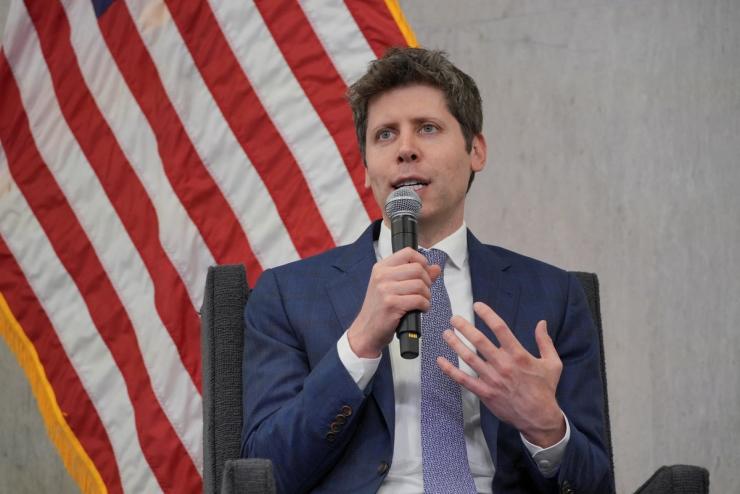The News
OpenAI unveiled GPT-5 Thursday, a long-awaited milestone in the company’s AI capabilities and the latest salvo in a hotly contested battle between tech giants and heavily funded startups for AI supremacy.
OpenAI Co-founder and CEO Sam Altman called GPT-5 the best model in the world in key categories like coding, writing, and health care knowledge.
“This is significantly better in obvious ways and subtle ways, and it feels like something I don’t want to ever have to go back from,” Altman said in a press briefing.
He was quick to say that GPT-5 did not constitute “artificial general intelligence,” the term used to describe the point when models can perform at or above human levels in all cognitive tasks. For instance, Altman said, it still is unable to continuously learn, but said it is “a significant step along the path to AGI.”
The model does offer significant improvements across the board, the company said. It is less prone to being confidently wrong, a common flaw in large language models often referred to as “hallucinations.”
GPT-5 also has better “agentic” capabilities, where the model can complete tasks autonomously, OpenAI said.
To show off its stepped up coding ability, OpenAI demonstrated how the app could build a simple working application very quickly from a simple prompt.
OpenAI said the new model would be available to all users, including in the free tier, starting Thursday.
In this article:
Know More
Almost immediately after the release of GPT-4 in March 2023, OpenAI began getting questions about when GPT-5 would be available.
But instead of that version, the company shipped scores of new models like o1, o3, 4.1, and 4.5. Advanced users were given the option of several versions of those models, all of which had advantages and disadvantages.
Starting Thursday, OpenAI said there will be only one option: GPT-5. Prompts from the company’s 700 million weekly users will be automatically routed to the appropriate version of the model, balancing cost and latency with capability.
Companies that pay à la carte for OpenAI products will still have the option of choosing specific models.
With the new release, OpenAI said it is changing the way it handles its strict content policies. Today, ChatGPT refuses to answer questions that would violate them. But GPT-5 instead will answer with the best response that still fits within its user guidelines.
OpenAI didn’t say whether the model had improved its responses about politics. That has become a hot-button issue, with both the left and the right side of the political aisle accusing the chatbot of bias.
Reed’s view
Calling GPT-5 an “AI model” is a bit of a misnomer. It really acts more like a system of different models acting like one service for customers.
For most people, the simplified interface will be an improvement. But there will be less transparency now on how the model routes those prompts.
When OpenAI demonstrated the model’s coding ability, it suggested making the same request in several different tabs and then picking the best answer. But OpenAI has said in the past that it struggles to meet demand for its services, and that kind of use case will no doubt put more strain on the company’s massive AI data centers.
OpenAI will need to find ways to use fewer “tokens” on some requests in order to make room for everyone. Exactly how that works won’t be clear to its consumer customers.
But this is a temporary problem. And, in one way, it’s a good problem to have. As AI infrastructure gets built out, users will have access to unfathomable amounts of compute, and the capabilities will increase just because of the sheer volume of GPUs that can be thrown at the problem.
Room for Disagreement
According to an article in The Information, staff departures and technical hurdles have limited OpenAI’s progress, leading to a GPT-5 release that could be somewhat underwhelming: “The improvements won’t be comparable to the leaps in performance of earlier GPT-branded models, such as the improvements between GPT-3 in 2020 and GPT-4 in 2023, one of the people said. And the slowing performance gains OpenAI has experienced over the past 12 months suggest it may be hard for the company to surge ahead of its biggest rivals, at least in terms of AI capabilities.”
Notable
- While GPT-5 will be smarter than its previous version, the hype will likely fall flat, Mashable argued. Even so, OpenAI will do fine — even incremental improvements, and the possibility that the company could go public in 2026, is helping it secure as much as $40 billion in funding by the end of this year.


